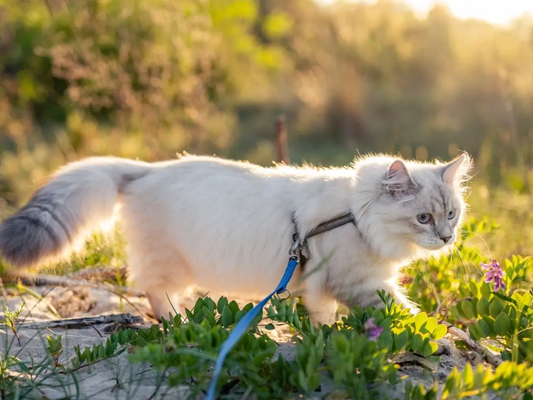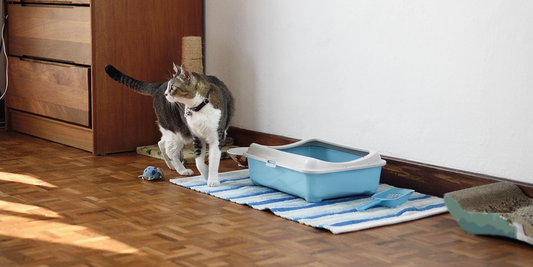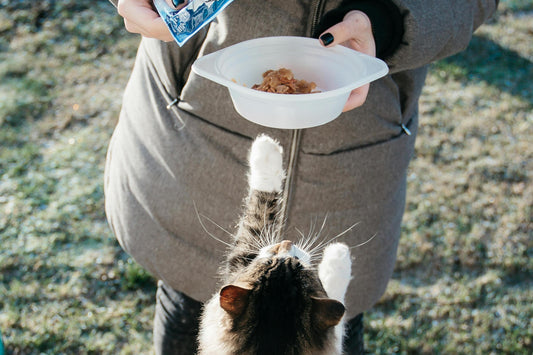Introduction
Cats are known for their cleanliness and meticulous grooming habits, but when it comes to their bathroom behaviors, it's essential for cat owners to be aware of what's normal and what's not. One common concern among cat owners is how long their feline friend can go without pooping. Understanding the typical bowel habits of cats and knowing when to seek veterinary attention can ensure your pet stays healthy and happy. In this comprehensive guide, we'll delve into the intricacies of cat poop schedules and what factors can affect them.
Factors Affecting a Cat's Pooping Frequency
In understanding how long a cat can go without pooping, several factors come into play, including:
- Dietary Habits: The type of food a cat eats significantly influences its digestive processes and, consequently, its pooping frequency.
- Hydration Levels: Adequate water intake is crucial for maintaining healthy bowel movements in cats.
- Age and Health Status: Kittens and senior cats may have different bowel habits compared to adult cats, and underlying health conditions can also impact their pooping frequency.
The Importance of Regular Bowel Movements
Regular bowel movements are essential for a cat's overall health and well-being. Here's why:
- Preventing Constipation: Regular pooping helps prevent constipation, which can be uncomfortable and even dangerous for cats.
- Detecting Health Issues: Changes in bowel habits can sometimes signal underlying health issues, making regular monitoring crucial for early detection and intervention.
How Long Can a Cat Go Without Pooping?
Wondering about the typical duration a cat can go without pooping? Let's explore: Cats typically have a regular pooping schedule, and any deviation from this schedule might indicate a problem. While the exact timeframe can vary depending on individual factors, most cats should have a bowel movement at least once every 24 to 36 hours.
Understanding Signs of Constipation
If your cat hasn't pooped within the usual timeframe or is displaying signs of discomfort, it's essential to monitor them closely for signs of constipation. These may include:
- Straining or crying in the litter box
- Small, dry, or hard stools
- Reduced appetite
- Lethargy or restlessness
Addressing Constipation in Cats
If you suspect your cat is constipated, there are several steps you can take to help alleviate their discomfort:
- Increase Water Intake: Ensure your cat has access to fresh water at all times and consider adding moisture-rich wet food to their diet.
- Dietary Changes: Switching to a high-fiber diet or incorporating fiber supplements can help promote regular bowel movements.
- Laxatives or Hairball Remedies: Your veterinarian may recommend specific laxatives or hairball remedies to help your cat pass stool more comfortably.
FAQs (Frequently Asked Questions)
-
How often should a healthy cat poop?
A healthy cat should typically poop at least once every 24 to 36 hours. -
Can stress cause a cat to stop pooping?
Yes, stress or anxiety can sometimes lead to changes in a cat's bowel habits, including constipation. -
When should I be concerned about my cat's poop habits?
If your cat hasn't pooped within 48 hours or is displaying signs of discomfort, it's essential to consult your veterinarian for further evaluation. -
Are there any home remedies for constipated cats?
While increasing water intake and dietary fiber can help alleviate mild constipation, it's crucial to consult with a veterinarian before trying any home remedies. -
Can dehydration cause constipation in cats?
Yes, dehydration can contribute to constipation in cats, highlighting the importance of ensuring your cat stays adequately hydrated. -
What can I do to prevent constipation in my cat?
Providing a balanced diet, ensuring adequate water intake, and promoting regular exercise can help prevent constipation in cats.
Conclusion
Understanding your cat's bowel habits is an essential aspect of responsible pet ownership. By knowing how long a cat can go without pooping and being vigilant for signs of constipation, you can help ensure your feline companion maintains optimal digestive health. Remember to consult with your veterinarian if you have any concerns about your cat's poop habits, as early intervention is key to resolving any underlying issues and keeping your cat happy and healthy.








